How to Stop Saying Hurtful Things When Angry
WhatToGetMy Instructional Article
- Humans are emotional creatures for the most part so most of us say, have said and will say hurtful things to others and chances of this increases significantly when we are angry.
- For some of us, this seems to be a recurring theme that just keeps on playing over and over as we just keep saying hurtful things out of anger. Indeed figures from the Bath government in the UK shown in the graph below suggested that emotional and verbal abuse are the second highest form of domestic abuse they recorded and this seems to be a common thread the world over.
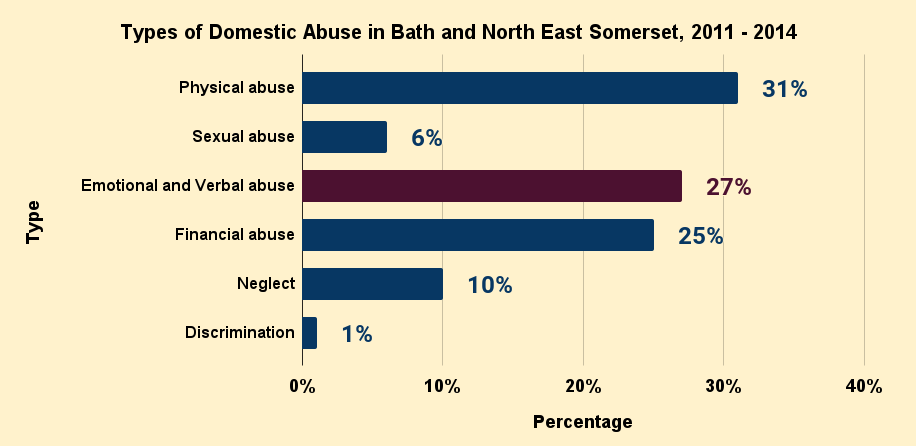
- Most times we don’t know why we do it and we feel so bad about it afterwards and wish we could take it back. Much like a broken glass however, regardless of how we try to fix things, the cracks have appeared and they are not going anywhere.
- The best way to avoid the consequences of saying hurtful things therefore, is to not say it in the first place and this is what most of us want so hopefully this article sheds some light on how to go about this.
In order to stop doing anything, we first need to know the source of that thing so that we know how to tackle it.
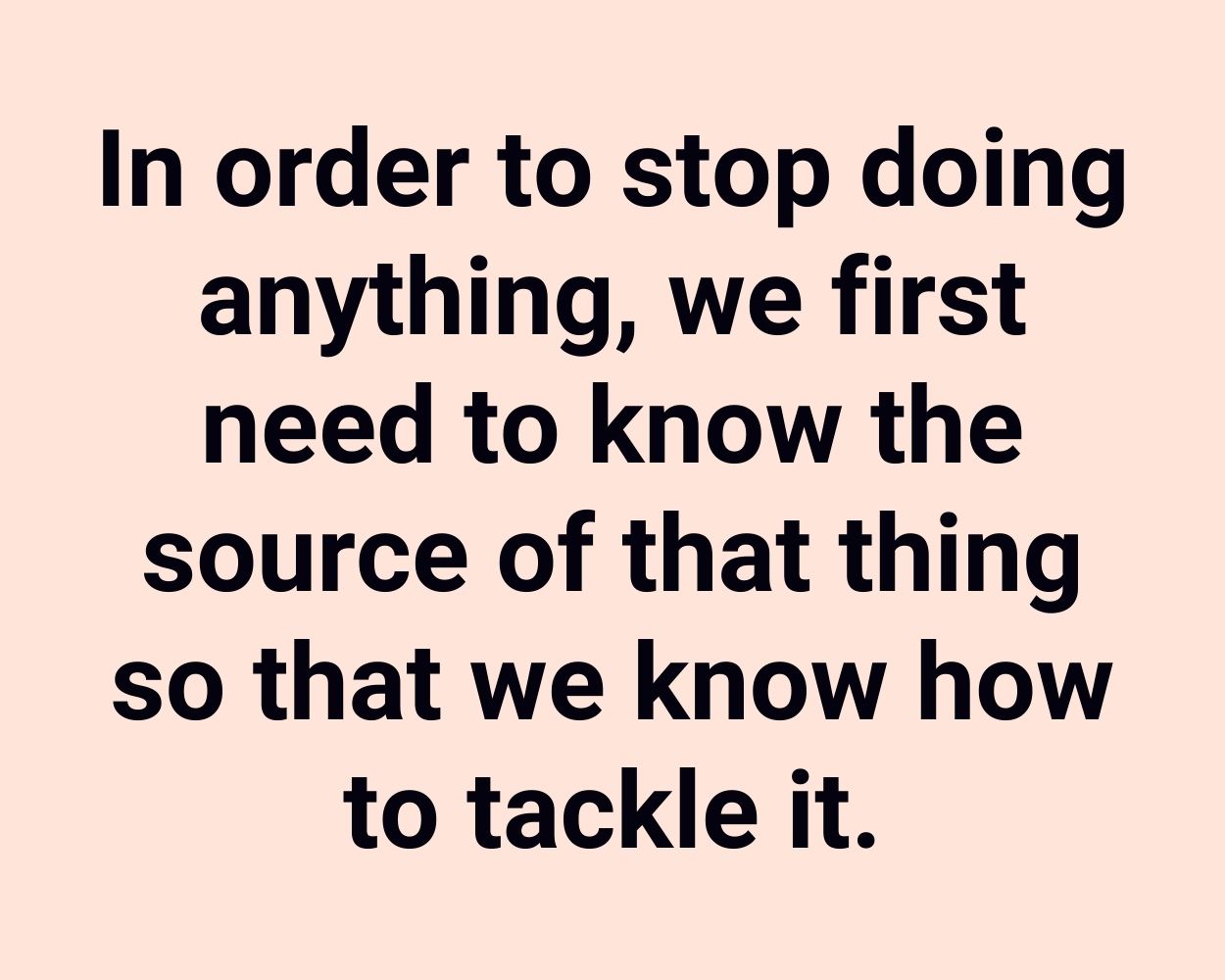
We therefore need to ask and answer the question, “why do I say hurtful things”, before we go about knowing how to stop it. Some of the reasons we say hurtful things include:
5 reasons we say hurtful things when we are angry
1. Lack of Social Skills and Upbringing.
Sometimes the reason we keep saying hurtful things to someone we love is because we simply do not know any better. It was how we were raised either by our families or other social structures around us as we grew up and so, we lack the necessary social skills to avoid being unintentionally rude and mean when we speak to others which only gets amplified when we get angry.
2. Presence of negative emotions.
Another reason we might keep saying hurtful things out of anger is due to the presence of negative emotions. These emotions could be a product of the current circumstances in our lives such as frustration at trying to finish a task at work, or, it could be an accumulation of negative emotions overtime.
Due to these emotions, we find ourselves trying to project it on others when we speak and when we get angry it becomes worse because we simply unleash it on the other party and try to get them to feel as negatively as we do.
3. Intoxication.
Look, we are not going to pretend that we don’t have some hurtful things to say about other people every now and then but, a big part of being an adult is knowing that we shouldn’t voice these opinions out loud.
When we get intoxicated however, mostly by alcohol, we lose significant control of our cognitive processes and find that we are more likely to dish out unintentionally rude and unnecessarily nasty things to others.
Throw anger into the equation and you have a recipe for absolute disaster.
4. Ego in fights.
Humans are competitive creatures by nature. The need to win is hardwired into our DNA and although we can do a good job of suppressing this, it can sometimes rear its head at times when we have less control over our mental faculties.
One such time is when we are angry and involved in a fight with others. We find ourselves wanting to win the fight instead of wanting to resolve the conflict. To do this we might resort to underhanded tactics such as degrading the other person with hurtful words so that they might drop out of the fight.
5. Insecurity.
Then there’s the ugly monster called insecurity. At times, when you say something you don’t mean it’s simply because you are trying to mask the insecurities you have about yourself.
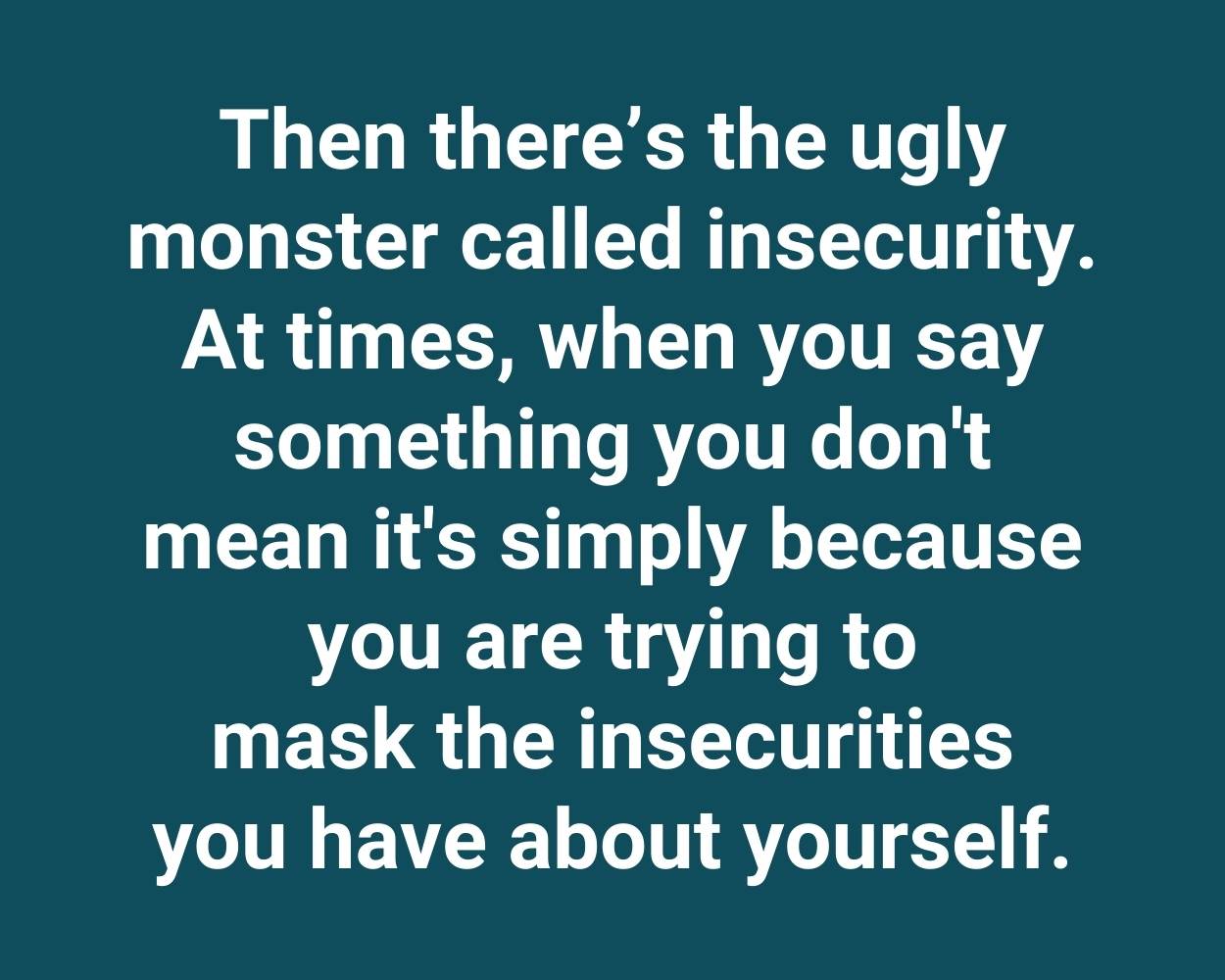
You might feel as though the other person will capitalize on these insecurities so you go on a pre-emptive attack instead to prevent this.
For instance, you might feel like you’re not as smart as the other person is so you insult their intelligence so that when they feel less so, you feel better about yourself.
Check out these articles on the effects of having an insecure partner.
6 effects of saying hurtful things to others when angry.
The thing about saying hurtful things is that it leaves some long term consequences that you need to be aware of. Knowing that saying hurtful things to someone you love when you lose control can lead to such consequences can go a long way in dissuading you from saying them in the first place.
6. Leaves a scar in the relationship.
Saying hurtful things to others serves to degrade their value and they will remember this for a long time, if not for the rest of their lives. This will therefore leave a scar in the relationship because the person will always feel like you don’t value them enough or that you look down on them.
Essentially saying hurtful things when angry ensures that a relationship is never the same again.
7. Other person puts distance.
Most of the time, humans don’t want to be made to feel bad about themselves and will take action to prevent it. If you keep saying hurtful things to a person when angry, a situation would arise where they start to withdraw from you and put distance in the relationship so as not to get hurt.
Should you continue, there is a strong chance the relationship with the other person breaks down irretrievably.
8. Loss of respect.
Respect is defined as having a feeling of admiration for someone. When we say hurtful things to others, whatever admiration they felt for us will be eroded and the more hurtful things we say, the more the “admiration erosion” till we get to a point where you can see for yourself that there is no respect for you from the other person. This is shown in more depth in this article about why people don’t respect you.
9. Cycle of hatred.
There is a common consensus that you do not try to hurt those that you love. In saying hurtful things therefore, the other person might begin to think that you hate them. This feeling will keep growing the more the hurtful things are said and will get to a point where they feel with absolute certainty that they are hated.
There are several ways that they would react with one of them being to hate you back. In such a case we can say that your words have formed a vicious cycle of hate in the relationship you have with the person.
10. Can make the other person toxic.
As mentioned above, there is a chance that the person begins to hate you for saying hurtful things but the bigger problem is that this can escalate to other people as well instead of being limited to you.
Earlier in this article we mentioned how we might be mean to others as a result of our upbringing and this is the effect that correlates with that.
Saying hurtful things to people might lead them to internalize those hurtful things and then say it to others as well which would mean that not only was a vicious cycle created between you and the person, but now a continuing vicious cycle has been created that involves other people as well.
Now that we know some of the reasons we say hurtful things to others as well as the effects of saying said things, we can now go about finding out some of the ways we can stop saying those things.
13 Ways to stop saying hurtful things when angry.
11. Identify the hurtful things you say.
The first step to stopping your penchant for saying hurtful things when angry is to identify what those hurtful things are.
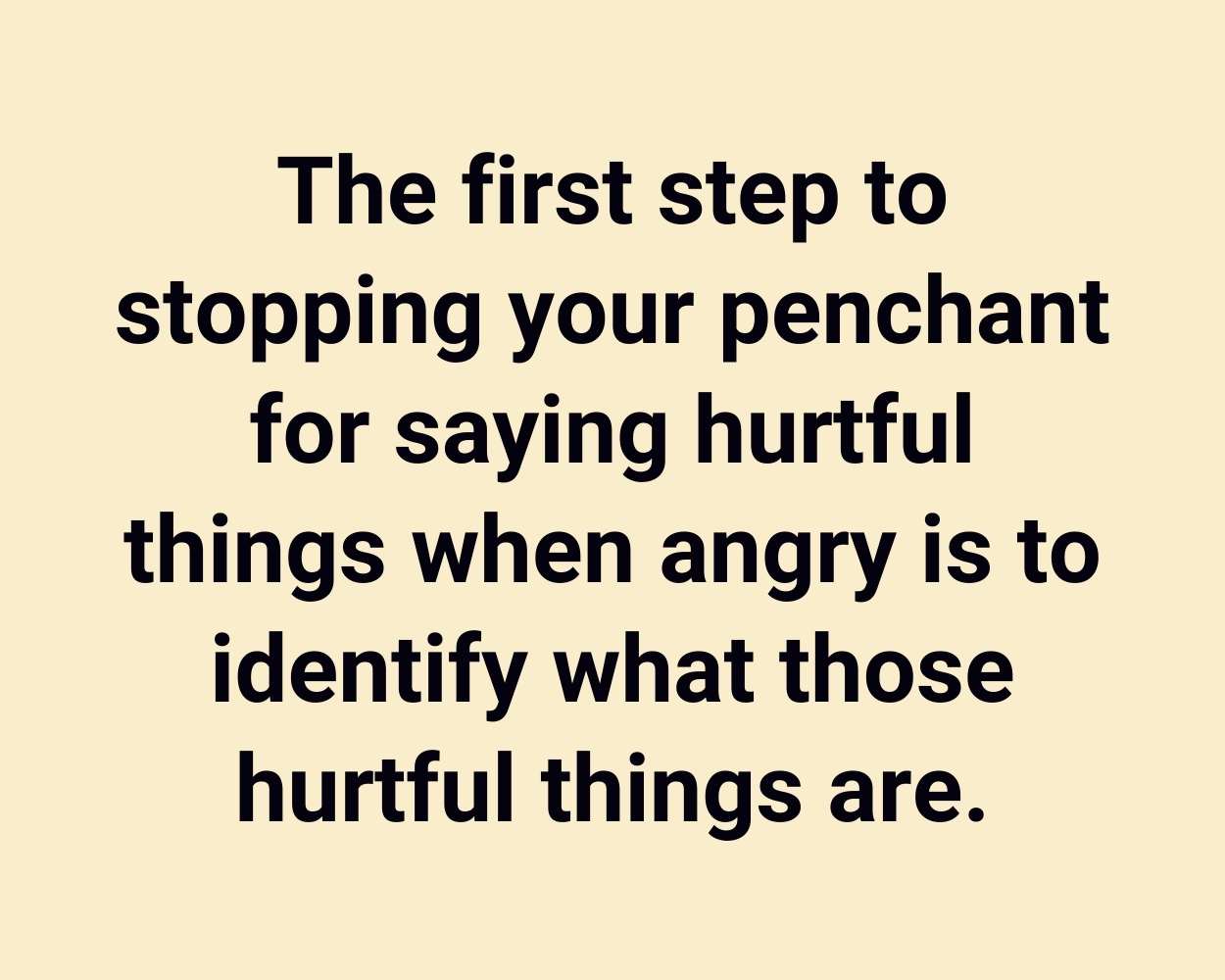
Humans are creatures of habit so the hurtful things you say will usually be the same or at least revolve around common themes.
Once you have identified these hurtful things, you can put them on a sort of “mental red list” where you tell your brain that such words are a no go area. Continual practice will lead to you having more control over when you use such words which means that you won’t be saying them unintentionally when angry any longer.
12. Avoid talking when angry.
This is a very effective way of avoiding the probability of saying hurtful things when angry. Instead of worrying about what to say and what not to when angry, simply say nothing at all.
When angry, you could decide to keep quiet until such a time when you have calmed down and can have a normal conversation.
If possible, you should walk away from the situation triggering the anger and if it isn’t, try to keep silent to the best of your ability even if it means that you have to remove yourself mentally from the situation by thinking about something else.
13. Work on your social and communication skills.
We have established that one reason why we say hurtful things especially when angry, is that we might lack the necessary social and communication skills to effectively communicate without resorting to hurtful words.
In order to reduce the probability that you say hurtful things therefore, you should improve your social skills. Some ways to do this include:
- Active listening – When people are talking, try to actually listen and understand what it is that they are trying to say. This will go a long way in ensuring that when you are angry, your comprehension of the situation is not clouded such that you resort to hurtful things on account of a misunderstanding.
- Research on social skills – There are many ways to find out how to improve your social skills including books, classes, podcasts and even clubs that you can join.
- Practice speaking – Practice makes perfect so keep on practicing how to be a better communicator. The most effective way to do this is to practice public speaking but you can also practice in front of a mirror or even in your mind.
14. You don’t always have to be the winner.
We explored that sometimes our ego is the reason we say hurtful things when we are angry, especially when we are in a war of words with someone else.
One way to avoid saying hurtful things therefore is to keep your ego in check and realize that you do not have to win the fight but should be satisfied with simply resolving it. Because you don’t have to win it, the chances of you saying hurtful things to do so reduces significantly.
15. Positive before negative.
Most times when we are angry, negative feelings are unleashed that cloud our thinking with only negative thoughts and words. In order to avoid this, try convincing yourself to think of positive words more rather than negative ones.
The more you do this and get better at it, the more you come to realize that even when angry, your go-to words are not negative ones, but positive ones. And while you don’t have to use positive words when angry because you know, you’re angry, you’ll be less likely to use negative ones.
To find out how to be more positive, check out this article on remaining positive in hard times.
16. Empathise with the other person.
We don’t want people saying hurtful things to us – at least I don’t – and if you are the same then it pays to put yourself in the other person’s shoes and ask yourself how you would feel if someone else said the same words to you.
If you don’t think that you would feel good, you should probably not say the words.
17. Talk about something else.
If you must speak when angry, then try to talk about something else instead that would not make you angry.
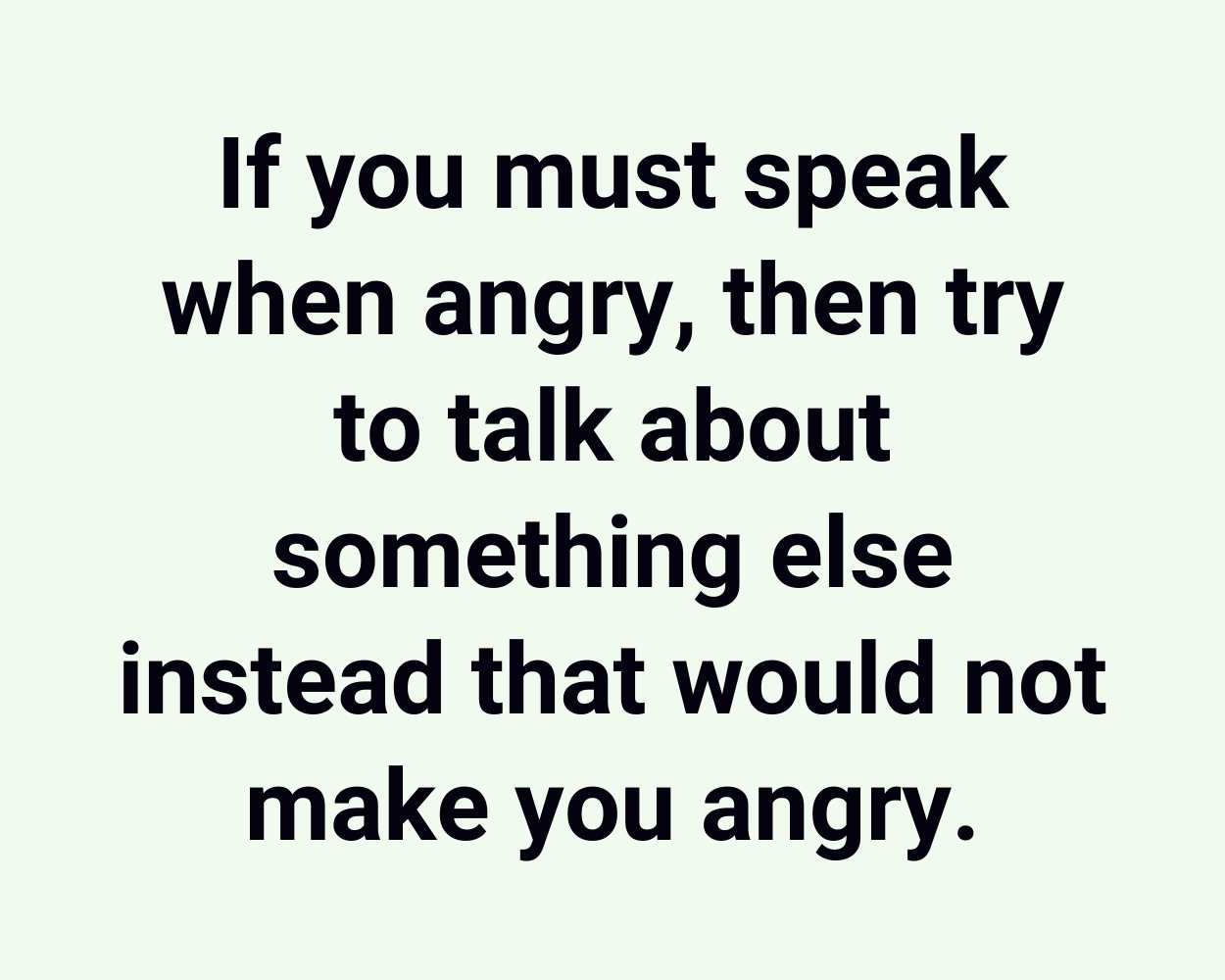
This is especially effective when talking to someone who is being unreasonable in a certain scenario and annoying you all the more.
Simply find something else to talk about that you feel might calm you down. When you are sufficiently calm, you can go back to the topic of contention with a clearer mind and a calmer deposition.
18. Stay on topic.
This might seem a bit contradictory to the point above but it isn’t. Many times when we are angry, we tend to relate the current situation to a previous one that really annoyed us. In linking those situations we become even angrier and run the risk of saying hurtful words based on a situation that has little to do with the current one.
In summary, it is best to treat a situation based on its own merits and not that of other situations that will increase the likelihood that we become more hurtful than we would otherwise have been.
19. Avoid sensitive topics when angry.
When saying hurtful things to someone you love, it is usually centered on certain topics that you know they can be especially hurt by. To avoid such a situation, you can identify those topics and practice making them off limits when angry.
Tell yourself that those areas are no-go areas when angry and try to stick with that. With those topics out of the way, you would have less hurtful things to say.
20. Call a Time-out.
Most of the times when we are angry, it is because we are involved in a fight. When that fight escalated, this is when we are most likely to use hurtful words.
Avoid this by simply calling a time out with the person you are fighting. Of course this only works with reasonable people but it works. Calling a timeout will enable the both of you to calm down and reassess your approach to the situation. When both of you are calmer, the conversation will be less heated and there will be less chances of hurtful words being used.
21. Avoid getting intoxicated.
This is especially effective when you know that you are about to approach a potentially triggering situation. For instance, if you know that there is a brewing conflict between you and a loved one i.e. a spouse, avoid getting intoxicated before approaching the situation.
This will ensure that even if you get angry, you would be in more control of your faculties and therefore would be more guarded when it comes to saying hurtful things.
22. Reflection after the fact.
Sometimes it is not immediately clear to use why we say hurtful words when angry or what triggers it. In such cases, it is best that we reflect on why we said what we said after the fact. This will show us where the problem lies which would be the first step to finding out how we can stop it.
The reason this is one of the last suggestions is because it has the unfortunate disadvantage of being useful only after the fact. The above suggestions are therefore preferable to this one but this can be quite effective as well.
23. Seek Help.
If all else fails then it might be time to seek professional help. There are therapists and leaders in the community who can help you walk through why you say hurtful words and what you can do to stop and you should not be afraid to approach them because it is their job after all. And if intoxication is the reason you say such hurtful things and you feel the problem is getting out of hand, this is even more relevant for you.
Frequently asked questions.
1. Why do I say horrible things when angry?
There are several reasons why we say horrible things when we are angry and some of them include our upbringing, social anxiety, a lack of social skills, pride and intoxication.
2. What are some hurtful words?
Languages are vast and offer the opportunity to be really creative when trying to hurt others. Common themes that hurtful words are derived from include intellect, their sexuality, body shape or weight, height and mental health and issues.
3. How do you control what you say when you are angry?
Take a step back from the situation causing you anger so that you remove anger from the equation entirely. You can also work on your social and communication skills as well as avoiding topics that might trigger you to say hurtful words.
Conclusion.
Being angry is a normal human emotion and being hurtful follows it more times than not. In targeting the use of hurtful words, it is often better to target the anger itself because isolating hurtful words from anger can be quite cumbersome.
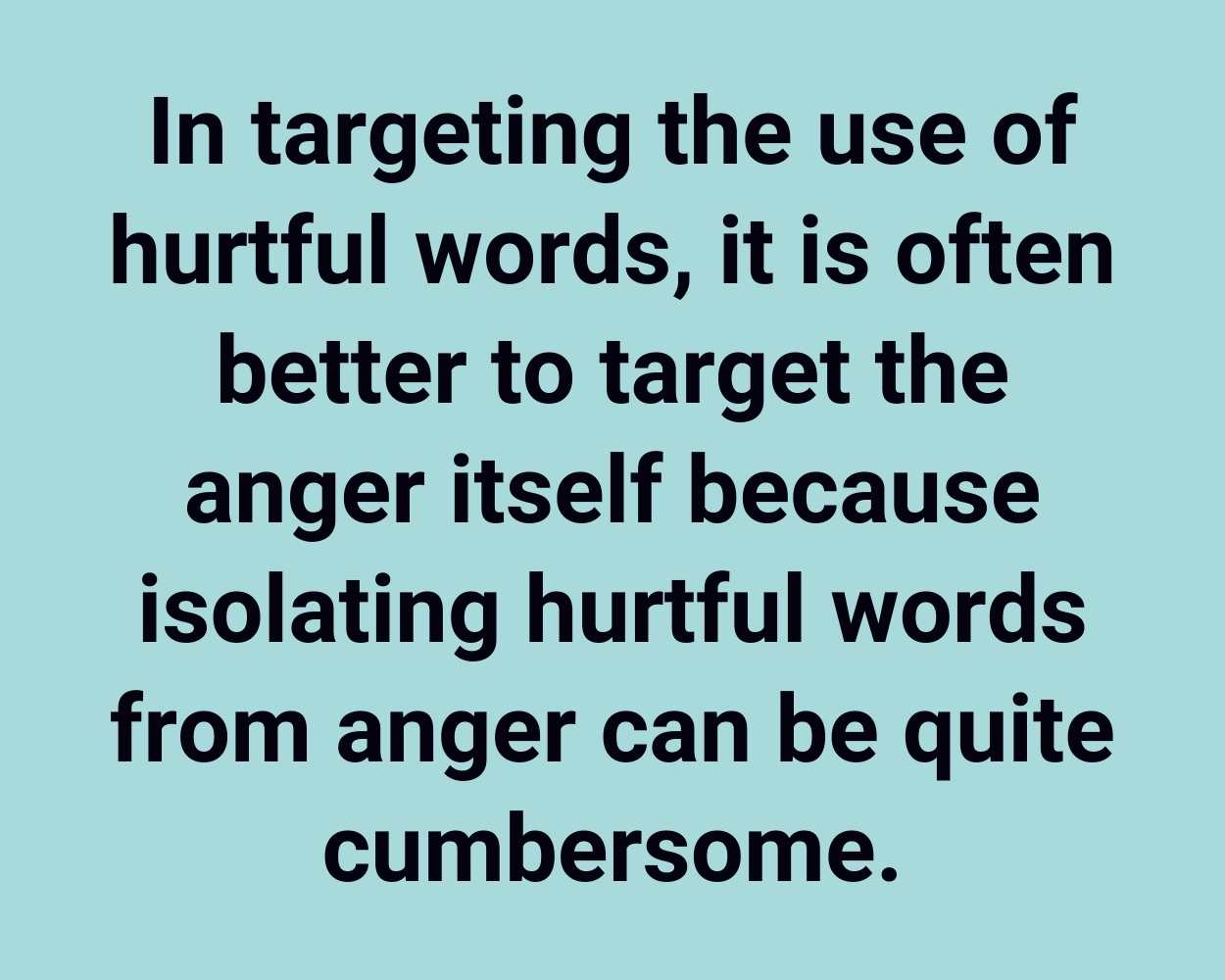
Basically, the most effective way to stop saying hurtful things when angry is to reduce the frequency by which you get angry in the first place. Prevention is usually better than treatment and this is massively the case here.
58 MINUTES
ESTIMATED TIME DESIGNING AND UPLOADING THIS ARTICLE
09 HOURS 58 MINUTES
ESTIMATED TIME RESEARCHING AND WRITING THIS ARTICLE
You Might Also Like


